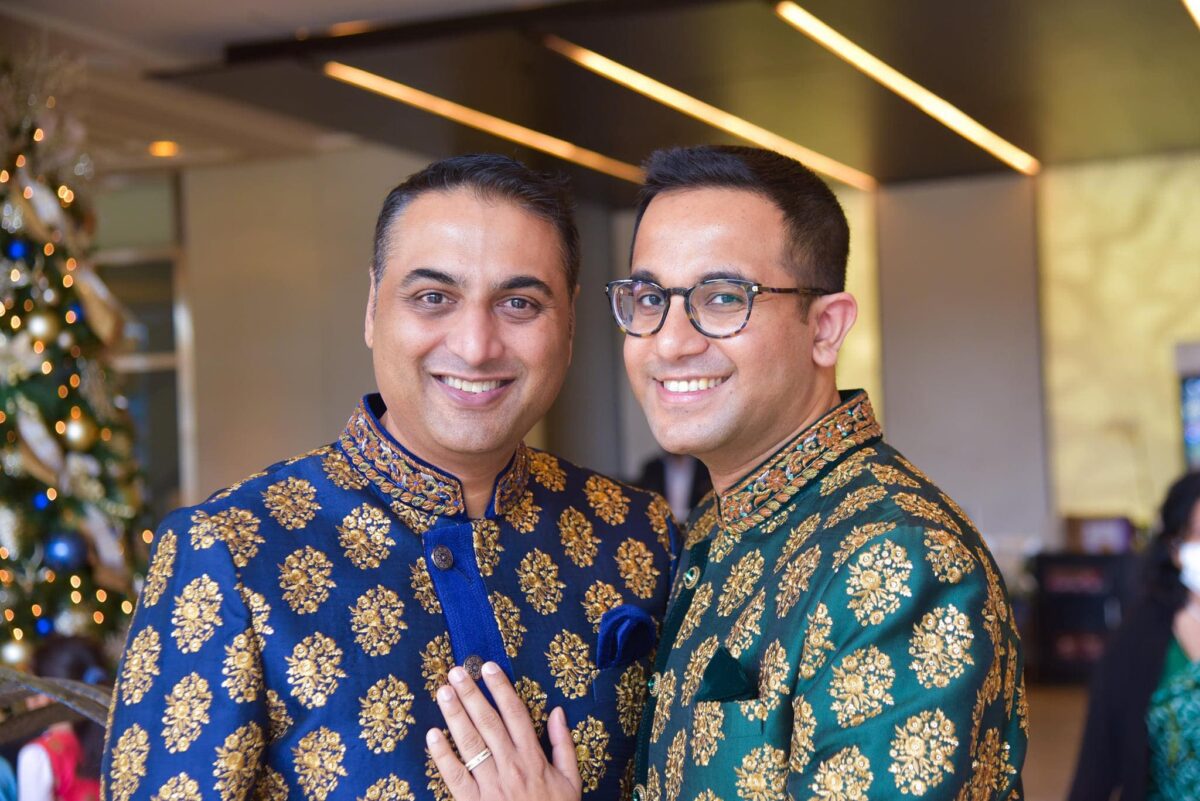On a 3-2 judgement, India’s Supreme Court Oct. 17 failed to affirm same sex marriages, arguing that there is no constitutional right to marriage.
The verdict was delivered by Chief Justice DY Chandrachud and Justices SK Kaul, SR Bhat, Hima Kohli and PS Narasimha. Attorneys for the petitioners argued that marriage is a fundamental right that should be granted to all citizens of India. But the court disagreed. “The constitution doesn’t expressly recognize a fundamental right to marry,” said Chandrachud, announcing the verdict.
The ruling noted that same sex marriage was not protected by the Special Marriage Act of 1954, which it interpreted as pertaining only to interfaith marriages. Moreover, the court ruled that Parliament and India’s states had the power to create laws upholding same-sex marriages, but it was not the Court’s responsibility to set precedent where no law exists.
Adoptions Prohibited
“Marriage is a social institution that exists outside the state,” said Bhat. “It is a social concern, over which the court has very little influence.” He noted that while LGBTQ+ people did have the right to choose their partners, the Court has no responsibility to ensure rights for such unions.
The Indian Supreme Court did rule that a special committee must be set up to ensure that LGBTQ+ people have the same protections under law as their heterosexual counterparts. Same-sex couples are also prohibited from jointly adopting together, even though Chief Justice Chandrachud proclaimed: “Law cannot make assumptions about good or bad parents.”
India’s Bharatiya Janata Party government, led by Prime Minister Narendra Modi, had opposed the case, arguing that marriage equality should be left to Parliament. Moreover, it characterized the case as representing “an urban and elitist perspective.”
‘Deeply Disappointed’
US-based couple Parag Mehta — managing director and President at JP Morgan Chase Policy Center — and his husband Vaibhav Jain, national outreach director at the AAPI Victory Fund, were two of the dozens of petitioners in the case. The couple joined millions of others around the world who watched live via YouTube the justices making their arguments in the matter.
“We are pretty crushed,” Jain told Ethnic Media Services minutes after the verdict was announced.
“We are deeply disappointed in the Supreme Court’s judgement this morning. We know it didn’t happen today, but India will ultimately get this right. And future generations will look back and wonder what all the fuss was about,” he said.
Foreign Marriages Are Valid
In a statement issued before the decision, Jain said: “Our case is pretty simple: for more than five decades, Indian law has held that foreign marriages are valid in India. In other words, a marriage in New York is a marriage in New Delhi.”
“And our Constitution explicitly prohibits discrimination on the basis of sex. So, as far as I am concerned, my marriage to Parag is already legal in India. The courts and the government simply need to acknowledge what is true and right,” said Jain, who is an Indian citizen. Mehta is an American citizen.
Mehta, who was the former chief of staff and senior advisor to U.S. Surgeon General Vivek Murthy in the Obama Administration, met Jain in Washington, DC in 2012. Five years later, they were married in a legal ceremony officiated by DC Circuit Court of Appeals Judge Sri Srinivasan.The couple recently adopted two infants, Rani and Vivaan.
Devastating Impact
Indian American writer Kunal Mukherjee, author of the seminal novel, “My Magical Palace,” the tale of an Indian teen coming to terms with his sexuality, told Ethnic Media Services: “The Supreme Court verdict was bitterly disappointing and far from courageous. It will have a devastating impact on the daily lives of tens of millions of LGBTQ+ citizens of India.”
But, noted Mukherjee, the case offered a victory of sorts. “20 years ago, no one knew what queer was. Right now, we are front and center for all of India,” he said, noting that the vast majority of Indians support same-sex marriages.





